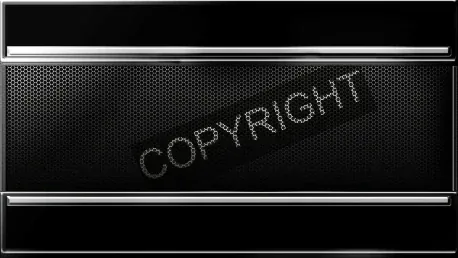The rapid development of artificial intelligence (AI) has led to significant advancements in various fields, including content creation. These AI tools can generate text, images, music, and even entire articles, raising crucial questions about the ownership and copyright of such creations. As AI continues to evolve, it is essential to examine whether content generated by these intelligent systems can be protected under existing copyright laws.
Copyright Laws and AI-Created Content
Current copyright laws, particularly in the European Union and the United States, are clear in their stipulation that copyright protection can only be granted to works created by human authors. The European Court of Justice (ECJ) has specifically ruled that only intellectual creations of human authors reflecting their personality and expressing their free and creative choices can be protected by copyright. This definition inherently excludes works generated by AI, as these creations lack the necessary human element to qualify for protection.
For example, the Municipal Court in Prague ruled that an image created by the AI tool DALL-E, developed by OpenAI, did not qualify for copyright protection. In this case, the court found that the AI tool’s output did not meet the threshold of originality required for copyright protection because it lacked human creativity and personal input. Similarly, in the United States, the District Court in Washington D.C. upheld a decision by the Copyright Office to deny copyright registration for a picture created solely by AI, emphasizing that human creativity is a core requirement for copyrightability.
Human Creativity: The Core of Copyright Protection
Despite the advanced capabilities of AI tools, the requirement for human creativity remains a cornerstone of copyright law. The court decisions in both Europe and the United States highlight that while AI can assist in the creation process, the final work must still embody human originality and creative choices to be eligible for copyright protection. For instance, a photograph, although produced by a mechanical device, can still be protected by copyright if it represents the original intellectual conceptions of the human author operating the device.
This principle means that AI-generated content, in its raw form, does not meet the criteria for copyright protection. However, there is a pathway for creators to secure copyright protection for AI-assisted works. By adapting and modifying AI-generated content, adding or altering elements to reflect personal creativity, authors can imbue the work with the necessary human touch, thereby qualifying it for copyright protection.
Strategies for Protecting AI-Created Content
Creators aiming to protect their AI-generated works under copyright law must introduce significant human input into the content creation process. This can be achieved by modifying the AI-generated output, such as adding new elements, altering existing components, or incorporating personal touches that reflect individual creativity. By doing so, authors can transform the AI-generated work into an original creation that qualifies for copyright protection, similar to how an arranger might alter a public domain musical piece to create a new, copyrightable rendition.
Furthermore, it is crucial for creators to meticulously document their creative interventions. Keeping records of the modifications and enhancements made to the AI-generated content can serve as critical evidence in defending copyright claims. This documentation can support the argument that the final work embodies the author’s originality and free creative choices, thus fulfilling the requirements for copyright protection under existing laws.
Practical Steps for Bookmarking Pages on Various Devices
While the legal landscape surrounding AI-created content continues to evolve, here are some practical steps for bookmarking important pages on different devices, ensuring easy access to your preferred legal content.
iPhone
- Tap the Share button at the bottom of the Safari screen for the website you’re on.
- Tap the icon labeled ‘Add to Home Screen’.
- Tap the ‘Add’ button in the upper right corner.
- Open the website from your Home screen by tapping its icon.
Android
- Click the ‘menu’ button.
- Click the ‘star’ button and save as a bookmark.
- Click the ‘menu’ button again and select ‘Bookmarks’.
- Press and hold the LawNow icon and then click ‘Add to home screen’.
Windows
- Click the ‘…’ icon in the bottom-right of the screen.
- Select ‘pin to start’.
- A new tile linking to LawNow will now appear on the start menu.
Blackberry
- Click the BlackBerry ‘menu’ icon.
- Select ‘Add to Home Screen’.
- In the ‘Add to Home Screen’ dialog window, click the ‘add’ button.
By following these steps, users can easily bookmark and access significant legal web pages across various devices, ensuring that they are always up-to-date with the latest developments in AI and copyright law.
Future Considerations in Copyright Law
The rapid advancement of artificial intelligence (AI) is revolutionizing numerous fields, notably content creation. With AI tools now capable of generating text, images, music, and even entire articles, new and critical questions are emerging about the ownership and copyright of these AI-created works. As these intelligent systems continuously advance, it’s crucial to scrutinize whether the content they produce can be protected under current copyright laws.
Current copyright laws were established long before the concept of AI-generated content became a reality, raising questions about whether these laws are suitable for such unprecedented scenarios. Traditionally, copyright protection is granted to works created by human authors. However, AI lacks human attributes such as intent and creativity, which complicates matters. As AI becomes more sophisticated, the debate intensifies over how to define authorship and ownership of AI-generated materials. Legislators and legal experts must work together to adapt existing frameworks or develop new ones to address the unique challenges posed by AI in the realm of copyright and intellectual property.









